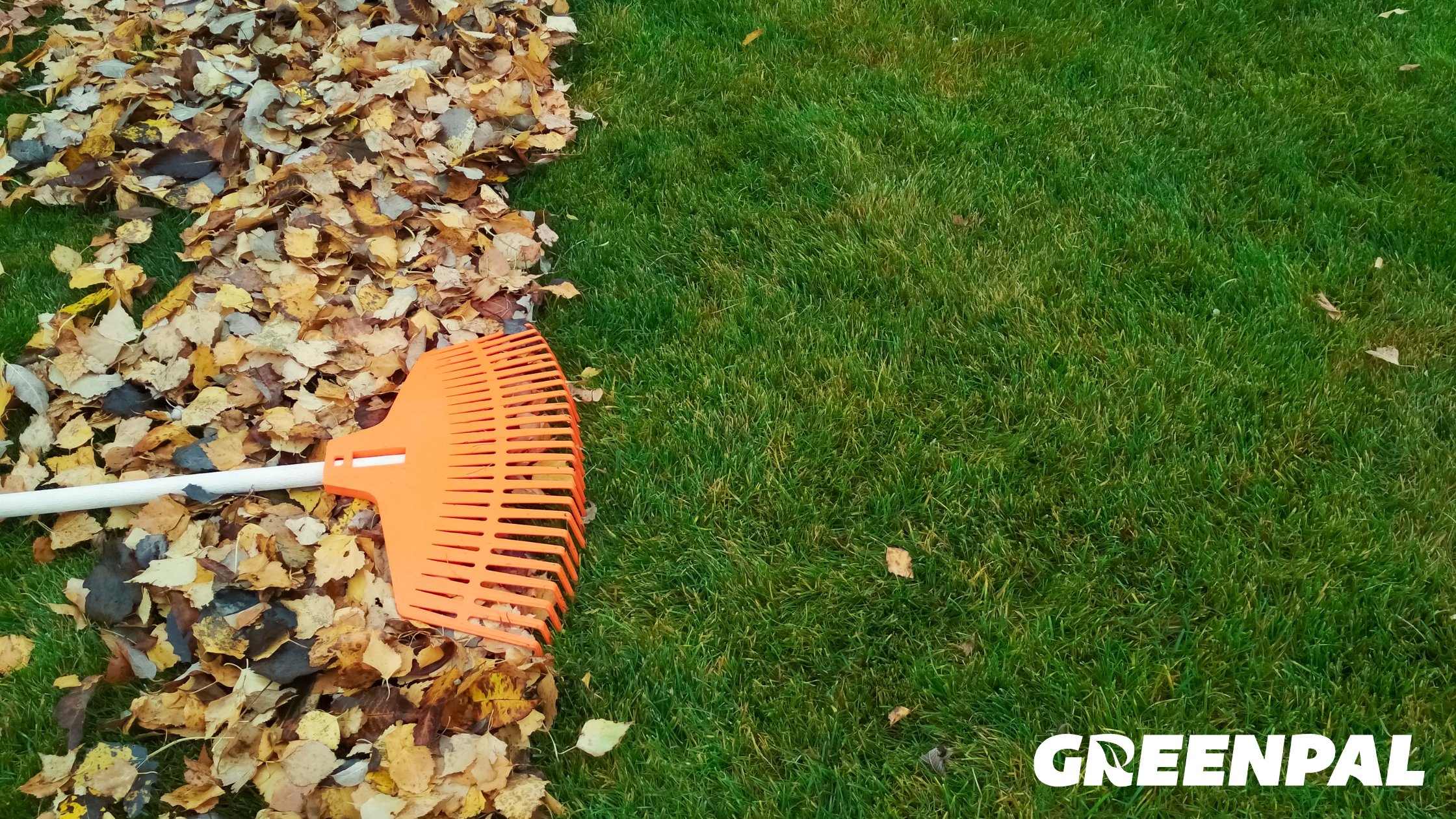Why You Shouldn’t Mow Fall Leaves (And What to Do Instead)
When the cooler temperatures hit and the leaves start to fall, you may think that the most efficient way to deal with leaves is to break out the lawnmower. While it may be tempting to get out there and mow your leaves, they are far more than yard waste. As homeowners become more aware of the ecosystem and how to maintain it, mowing leaves is something you should probably reconsider.
Leaves are vital for pollinators, soil, and the local ecosystem. The common practice of mowing or mulching can strain this system, potentially causing more harm than good.
If you’re still mowing your leaves, here are some reasons to stop today.
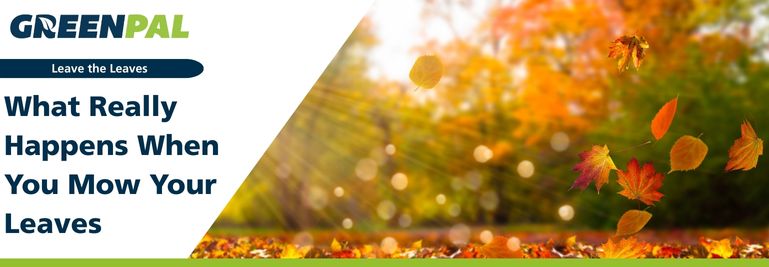
Why Mowing or Mulching Leaves Can Harm Wildlife
When you run over leaves with a mower or mulch them into tiny pieces, you’re not just cleaning up your yard; you’re destroying shelter for dozens of species that rely on leaf cover to survive the winter.
Pollinators like Luna moths, fireflies, and Mourning Cloak butterflies overwinter in leaf litter. When those leaves are shredded, their life cycles end prematurely. That means fewer pollinators in the spring, which has ripple effects for plants, gardens, and even crops that depend on them.
The important thing to remember is that this is not just insects that will feel the impact. Birds rely on these insects for food, and small mammals use leaf piles for warmth and protection. One pass with a mower disrupts the whole chain.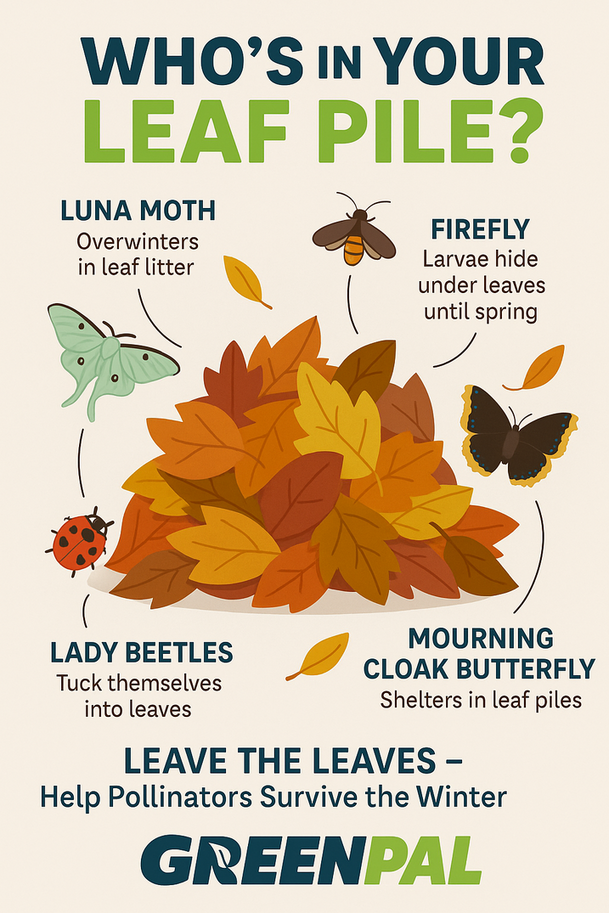
Who’s in Your Leaf Pile?
You might be surprised to learn what’s hiding out in those piles — and it might make you think twice about jumping in them like you did as a kid.
Some common leaf pile residents include:
Luna Moth – Overwinters in leaf litter.
Firefly – Larvae hide under leaves until spring.
Lady Beetles – Tuck themselves into leaves for protection.
Mourning Cloak Butterfly – Shelters in leaf piles through winter.
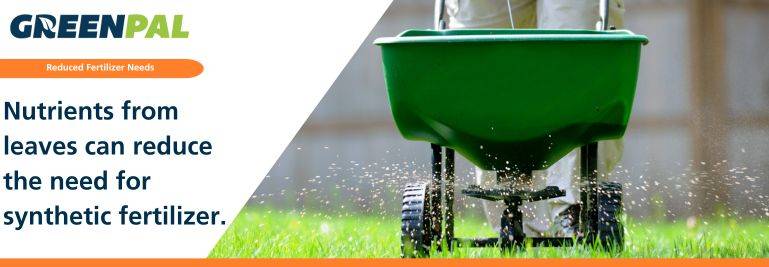
The Benefits of Leaving the Leaves
Leaving leaves in your yard provides multiple benefits beyond protecting wildlife:
Improved soil health – As leaves break down, they add valuable organic matter and nutrients back into the soil.
Better water retention – A layer of leaves helps hold moisture in the ground.
Erosion control – Leaf cover protects topsoil from wind and rain erosion.
Reduced fertilizer needs – Nutrients from decomposed leaves mean less reliance on synthetic fertilizers.
However, we do understand the challenge. Not everyone wants a yard full of leaves, and some HOAs even require that you keep grass visible. That’s where smart alternatives come in. There are alternatives to mowing leaves that could help you balance the aesthetic appeal and the living creatures in the yard.
Alternatives To Mowing Leaves
You can protect pollinators while keeping your property looking neat. Here are some eco-friendly alternatives:
Rake leaves into garden beds – Protects plant roots and adds nutrients.
Create a leaf pile or leaf mold bin – Compost leaves for rich, organic mulch.
Use leaves as natural mulch around trees – Retains moisture and suppresses weeds.
Designate a leaf zone – A small area in your yard for pollinators to overwinter.
Hire a pro through GreenPal – Find eco-friendly lawn care pros who know how to manage fall cleanup without harming the local ecosystem.
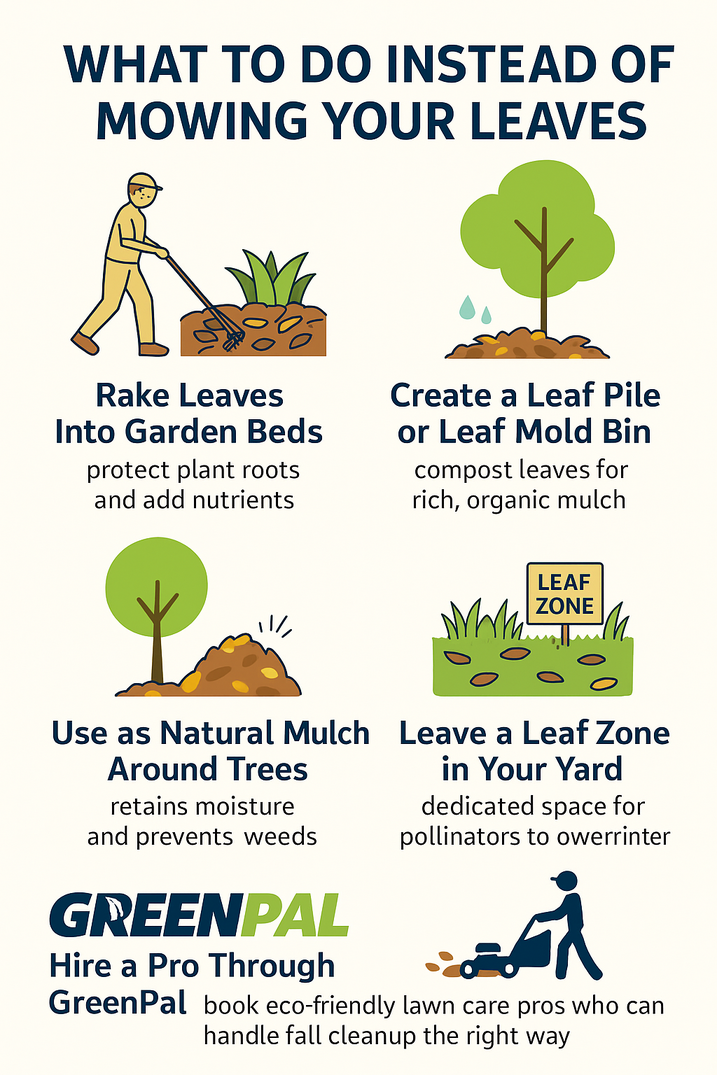
FAQs About Fall Leaf Management
1. Will leaving leaves kill my grass?
A thick, matted layer of leaves can smother grass. That’s why it’s best to move them into beds, compost areas, or spread them thinly.
2. Can I still mulch some leaves?
Yes — if done sparingly and without shredding key overwintering areas. Avoid mulching all leaves across your property.
3. How do I keep my yard neat for my HOA?
Consolidate leaves into defined zones, use them in landscaped beds, or compost them out of sight.
4. Are certain leaves better for mulch than others?
Yes. Softer leaves like maple and birch break down faster, while oak leaves take longer and may need shredding before use in gardens.
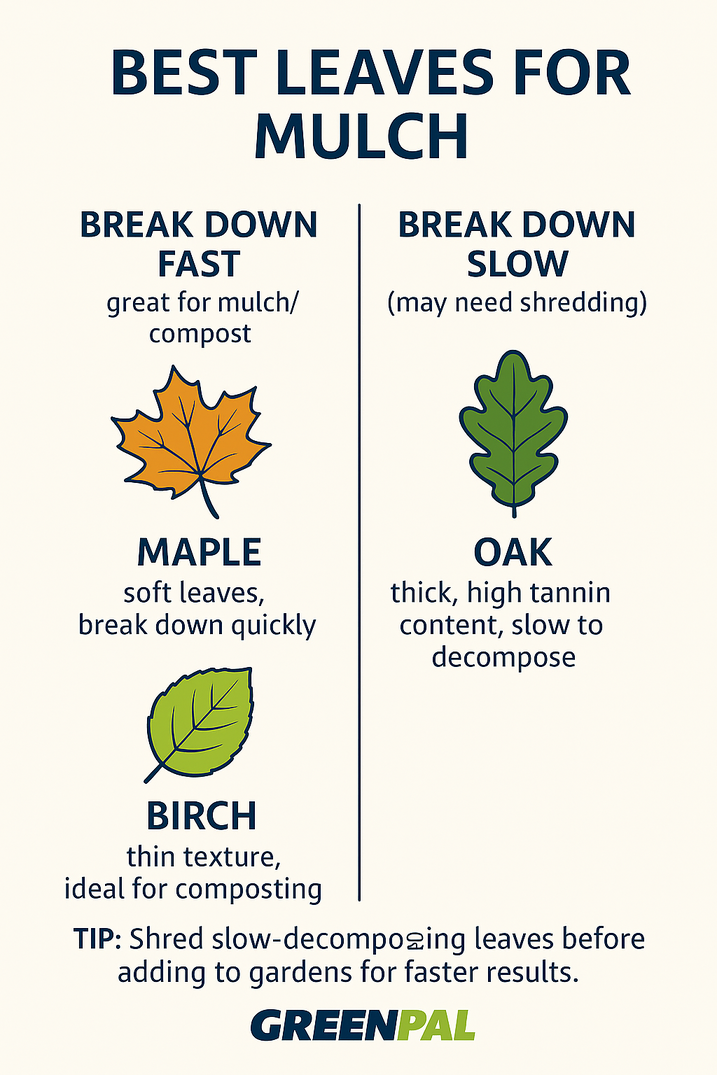
Get Some Help Managing Your Leaves
Whether you want to remove the leaves entirely, relocate them to another area of your yard, or repurpose them as mulch, a professional can help you do it the right way.
Use GreenPal to find landscapers who care about the local ecosystem as much as you do and who also understand the importance of keeping your yard clean, healthy, and beautiful.



 Share
Share